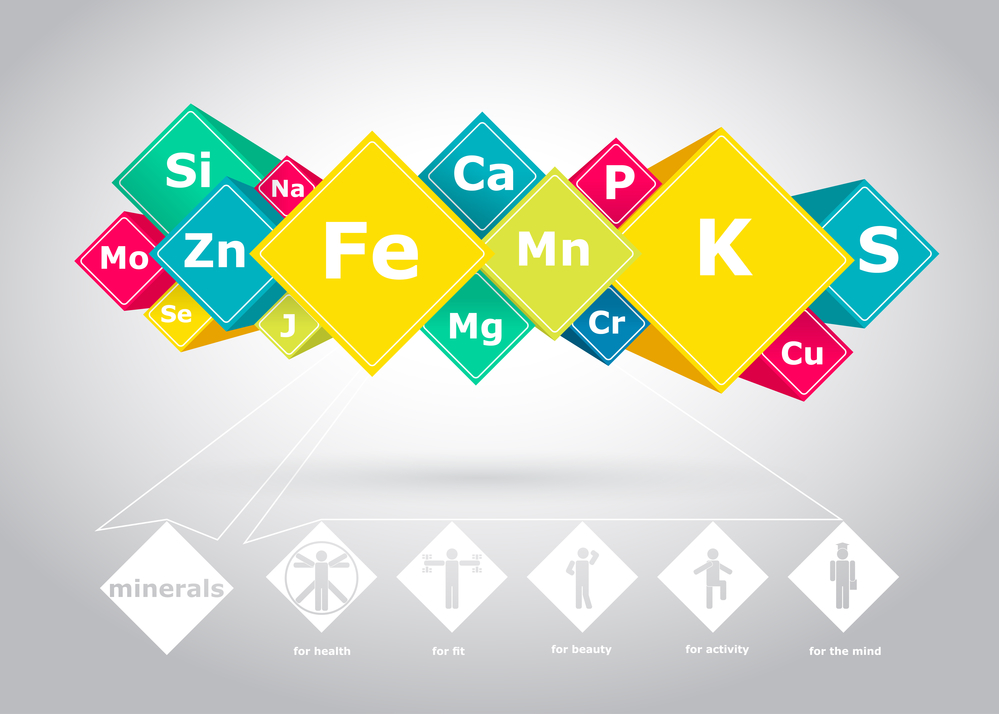Iron is an essential mineral that is needed to help your body produce hemoglobin and myoglobin. Hemoglobin are red blood cells that carry oxygen throughout the body. Myoglobin are proteins that help provide oxygen to cells in the muscles. Myoglobin is very important for athletes.
Low iron can cause trouble in your body. Your body does not produce iron on its own you must get this requirement from food and/or supplements. Most people get enough iron through their diet, but sometimes supplements are needed.
Iron rich foods are shellfish, spinach, liver, legumes, red meat, pumpkin seeds, quinoa, turkey, and iron-fortified cereals.
Risk Factors for Iron Deficiency
Iron deficiency is very common. Many people need to take supplements of iron to keep the right level of iron in their bodies. Iron deficiencies occur when there is an excessive loss of iron or there is too little iron in the diet.
An excessive loss of iron can occur from blood loss, reduced absorption, prolonged exercise, women on their menstrual cycle, women who are pregnant due to the demand of the growing fetus, and vegetarians who don’t eat red meat.
Someone who has a gastrointestinal condition or has had a gastrointestinal surgery may also have low iron due to absorption issues.
Women and children both need more iron than men, so they are more likely to become deficient.
Symptoms of Iron Deficiency
Iron deficiency can cause fatigue, shortness or breath, dizziness, headaches, pale skin, weak and brittle nails, poor memory, and difficulty concentrating.
Severe deficiencies can cause iron deficiency anemia which is the most common type of anemia. This is when your body has hemoglobin levels that are below normal.
Deficiencies can also cause arrhythmias, heart murmurs, an enlarged heart, or heart failure.
Iron deficiency has also been shown to cause restless leg syndrome. Which is when you have the sudden urge to move your legs, that usually happens at night.
Iron deficiency can also cause a decrease in cognitive levels, cancer, kidney disease, or gastrointestinal disorders.
Someone who has inadequate iron intake may also see a decline in their sports performance. This is due to the lack of iron in the body causing the inability for myoglobin to be produced and to bring oxygen to the cells in the muscles.
Iron Supplementation
Too little iron can cause trouble, and so can too much. The risk of having too much iron in your body just from your diet is slim. Most of the time that overdoing iron intake happens when taking supplements incorrectly. Too much iron can cause nausea, vomiting, stomach pain, and constipation.
When taking an iron supplement it is important to talk with a doctor if you are on other medications. Iron supplements can interact with other medications causing them to be less effective. There are some foods that can cause your body to not absorb iron as well and they are black or green tea, coffee, eggs, cereal, bread, soy protein, and calcium supplements. It is important to not try to take your iron supplement while eating these foods or a calcium supplement. They should be taken at different times of the day. Iron can reduce absorption of other essential minerals such as zinc, copper, magnesium and manganese.
Health Benefits of Iron
Iron is important for your body. It can help reduce tiredness and fatigue. It supports good energy levels, by helping the hemoglobin to carry oxygen through the body. Iron is essential in producing hemoglobin and myoglobin in the body. Iron can help improve mental and physical performance. It also helps with normal cognitive functions. Iron helps boost the immune system. It assists with a healthy pregnancy and can be found in most prenatal vitamins. Iron is important for muscle growth and development, as well as athletic performance. Iron can promote peaceful sleep.
Takeaway
Iron is important for your overall health. If a deficiency is left untreated it can progress to iron deficiency anemia or cause other issues in the body. The daily requirement of iron is usually met through a person’s diet. In some cases supplements may be required to keep normal iron levels in the body.
Someone who donates blood often can be at risk for iron deficiency. Women and children need more iron than men. Iron supplements can cause interactions with other medications as well as hinder the absorption of other essential vitamins. Taking too much iron can cause symptoms so getting the needed dose without any side effects is what most people hope for.
Iron deficiency is common, know the signs! Iron is an essential mineral you need for good health! #HealthSurgeon
Sources:
https://www.verywellhealth.com/iron-supplements-benefits-4178814
https://beelinehealthcare.com/iron/
https://www.healthonemedicine.com/blog/the-importance-of-iron-in-your-diet
https://www.organicfacts.net/health-benefits/minerals/health-benefits-of-iron.html









